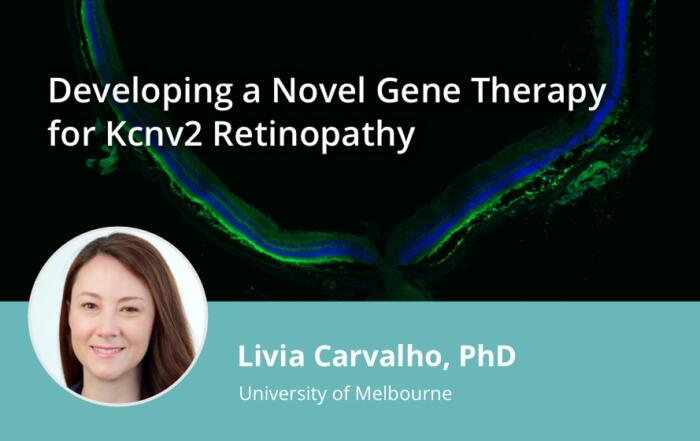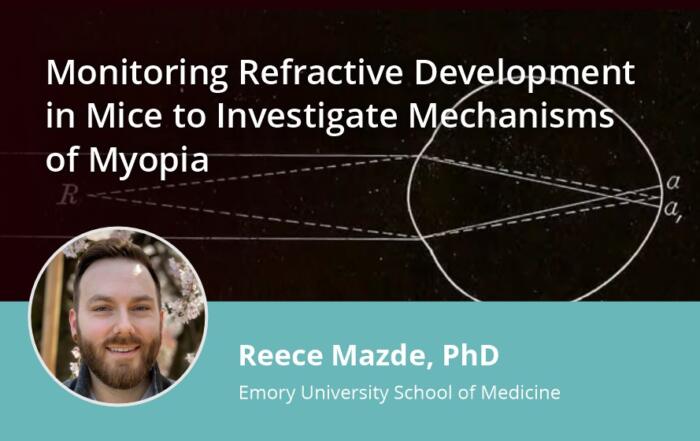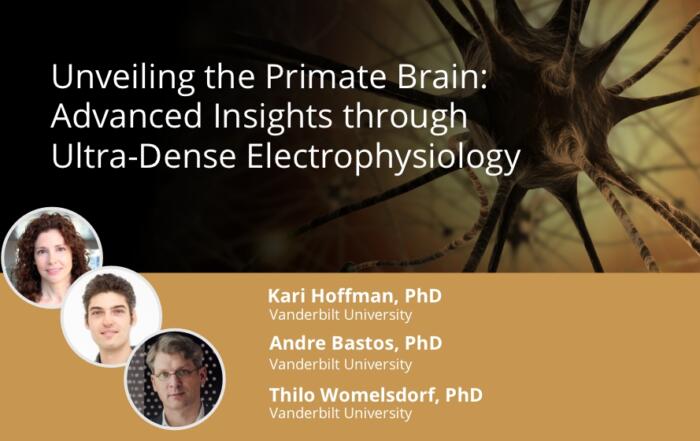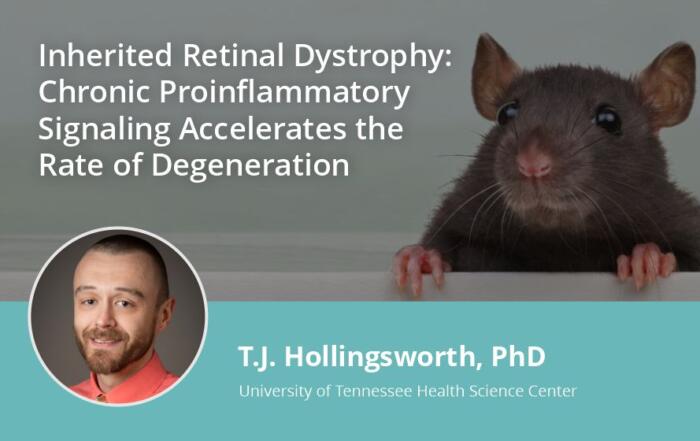Supraja’s presentation provides insights into mechanisms that promote retinal ganglion cell (RGC) axon regeneration in vertebrates.
Her work describes a distal optic tract injury model that can be used to investigate re-connectivity of RGC axons to central targets in the brain. She also describes how increased neural activity in retinorecipient neurons in the pretectum promotes RGC axon regeneration, and rescues deficits in optomotor function caused by injury. Techniques used include intravitreal injections, chemogenetics, anatomical tracing, optomotor testing, and histology.
Key Topics Include:
- Key signals involved in visual circuit formation during development
- New injury model for investigating reconnecting visual circuits
- Current and future potential therapeutic treatments for restoring vision
- Categories: Neuroscience, Vision Research
- Tags: chemogenetics, eye disease, neural activity, Optomotor tracking, retinal degeneration, retinal injury
Resources
Presenters
Supraja Varadarajan, PhD
Incoming Assistant Professor
University of Texas Southwestern Medical Center
Supraja Varadarajan obtained her PhD from the University of California Los Angeles and completed her postdoctoral work at Stanford University in the lab of Andrew Huberman. She is primarily interested in the mechanisms that regulate axon growth in both health and disease.
Webinar Host
Striatech
Striatech is a young biotech company that spun off from the University of Tübingen, Germany, at the beginning of 2018. The founders – a team of neurobiologists – are all experienced vision researchers and have made it their common goal to make innovative ideas and products from vision and behavioral research accessible to scientists worldwide.
Additional Content From Striatech
Developing a Novel Gene Therapy for Kcnv2 Retinopathy
Livia Carvalho, PhD discusses her team's successful development of a novel AAV-based gene therapy approach for KCNV2 retinopathy in a Kv8.2 knockout mouse model.
Monitoring Refractive Development in Mice to Investigate Mechanisms of Myopia
Reece Mazade, PhD demonstrates the usefulness and feasibility of refractive error measurements in mice and discusses mechanisms of refractive development enabled through application of an automated Photorefractor.
Symposium: Opportunities, Hopes, and Challenges in Translating Visual Restoration from Mouse to Human
Striatech celebrates its 5th anniversary with a top-class Symposium on the topic of translating visual restoration from mouse to human.
Related Content
Unveiling the Primate Brain: Advanced Insights through Ultra-Dense Electrophysiology
In this webinar, Drs. Kari Hoffman, André Bastos, and Thilo Womelsdorf present their research on the neurophysiological basis of learning, cognition, and sensory processing, including attention and connectivity between brain regions in non-human primates.
Inherited Retinal Dystrophy: Chronic Proinflammatory Signaling Accelerates the Rate of Degeneration
T.J. Hollingsworth, PhD, discusses findings from a recent study examining the effects of chronic proinflammatory signaling in inherited retinal dystrophy (IRD).
Developing Retinal Gene Therapy for Zellweger Spectrum Disorder (ZSD)
Catherine Argyriou, PhD, discusses peroxisome disease and the development of a retinal gene therapy for PEX1-mediated Zellweger Spectrum Disorder.







